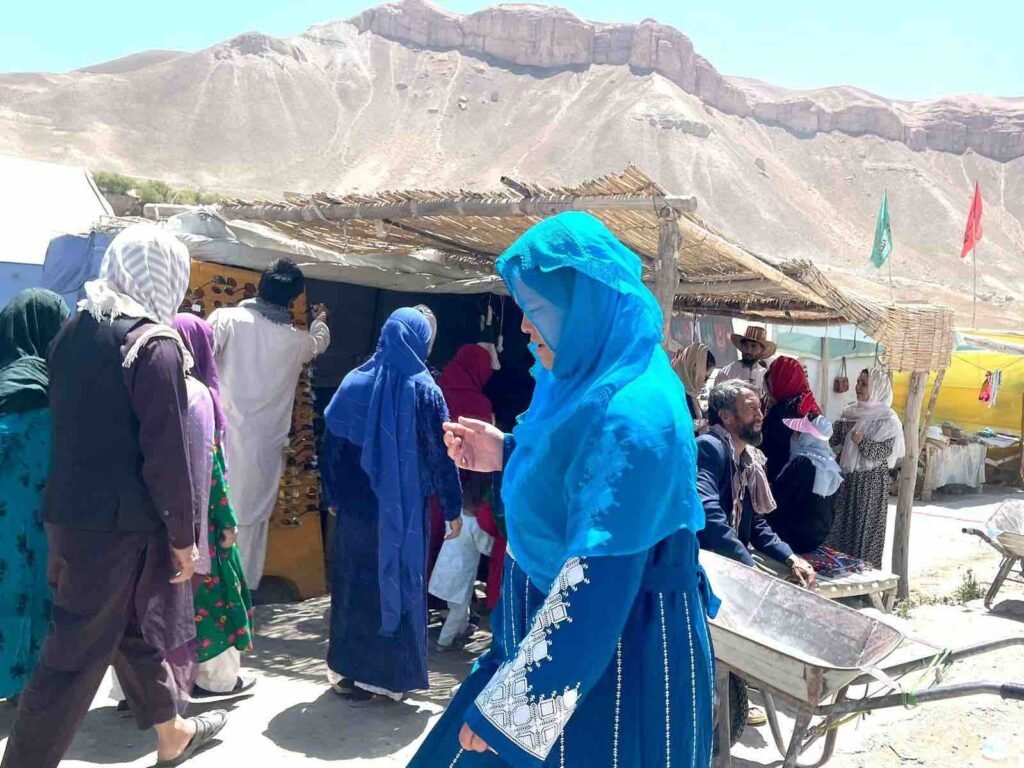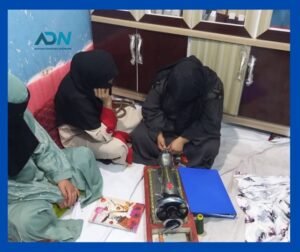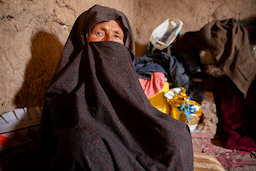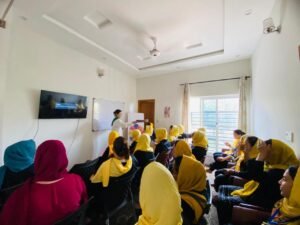Recent Statement by the Taliban Supreme Leader and Its Implications on Women’s Rights and the Justice System in Afghanistan

A local market in Central Bamiyan province in the summer of 2023. Photo captured by @AADIL for ADN
Nazila Jamshidi
Recently, Hebtollah Akhundzadeh, the Taliban Supreme leader, addressed the Westerners in the audio tape that was broadcast on Shariat Radio in Kabul. Part of if says:
“We fought with you for 20 years, we will fight for another 20 years to implement Sharia on earth. You have a fight to save humanity, I also have a similar fight. I am arguing on behalf of Allah and you are arguing on behalf of Satan. Westerners do not distinguish between animals and women. What the West wants in the name of women’s rights, scholars oppose such demands and against democracy. It was because of the presence of scholars that democracy did not take place on the ground. Even if it is said that stoning women is violating women’s rights, tomorrow we will enforce it in public, we will stone women. We perform Hudud Allah in public.”
But what message does this convey to the women of Afghanistan who are desperately waiting to see a sign of change in their circumstances?
For women who have experienced nothing but significant setbacks under the regime, this message signals an even darker future. Since 2021, women have witnessed the regime’s actions, including the closure of secondary schools for girls, the banning of women from attending university and working at NGOs, restrictions on travel without a male chaperone, and prohibitions on their presence in public spaces such as parks and gyms. Moreover, women have been excluded from numerous sectors, including the beauty salon industry, which employed approximately 60,000 women—many of whom were the sole providers for their families—further exacerbating the struggles of already vulnerable households.
Now, with this statement, women fearfully wonder how the concept of “performing Hudud Allah in public” will be interpreted and implemented. They dread the possibility of their already challenging circumstances becoming even more unbearable. This statement adds to their anxieties about the future, as they grapple with the grim reality of an era they never imagined could become their own.
“We will stone women in public,” declared the Taliban supreme leader in the audio tape, sparking understandable alarm among human rights defenders. In the absence of a fair judicial system, laws, and policies to protect women, they are vulnerable to corporal punishment, including stoning. Many women’s rights activists are currently held in Taliban prisons without access to legal representation or fair judicial proceedings. Their families are left in the dark about the duration of their imprisonment and the possibility of a fair trial.
Moreover, there is no legal framework to safeguard women facing domestic or social violence. As asserted by UN experts, the Taliban’s actions, including the suspension of the 2004 Constitution, the removal of judges from the bench, and the weakening of the Attorney General’s office, have led to the collapse of the rule of law and judicial independence in Afghanistan. In light of the already inadequate justice policies for women, the endorsement of corporal punishment for women by the Taliban only intensifies women’s fears about their future.
Immediate Actions Needed
The international community, including the United States, invested billions of dollars over the past two decades to rebuild the Afghan legal and judicial system, making significant progress in improving the rule of law and governance in Afghanistan. However, following the Taliban takeover, these achievements quickly vanished, and the foundations of the Afghan legal system are now in a state of despair, approaching the lawlessness that existed before 2001. The Afghan legal and judicial system is rapidly collapsing, with the Taliban suspending laws, dissolving independent legal institutions, and replacing qualified personnel with untrained militants.
The recent statement by the Taliban leader regarding stoning women in public suggests that human rights violations will only escalate dramatically. The implications of such violations will extend beyond Afghanistan, affecting the entire region and the world. Therefore, the international community cannot remain silent in the face of such statements. The world must set a system to hold the Taliban accountable for dire human rights abuses and arbitrary actions. The sooner such a system is implemented, the sooner the negative outcomes for everyone can be averted. The substantial investments made in rebuilding the Afghan justice system must not be in vain. The United Nations and the countries engaged in negotiations with the Taliban must react to these statements and arbitrary actions. They should emphasize the importance of restoring the justice system and withhold from placing unqualified fighters in positions requiring legal knowledge and experience.
The UN and the international community have the leverage to demand that the Taliban uphold the rule of law and adhere to appropriate legal procedures in all their actions. Silence in response to such statements only encourages the Taliban to further implant a system of corporal justice based on their interpretation of Sharia law, which would be a mockery under the watch of international human rights laws.
Nazila Jamshidi – a gender equality and human rights specialist involved in Afghanistan’s development and democracy processes for the past decade – has worked for the UN, USAID, the International Federation of Red Cross.
Note: The contents of the article are of sole responsibility of the author. Afghan Diaspora Network will not be responsible for any inaccurate or incorrect statement in the articles.










